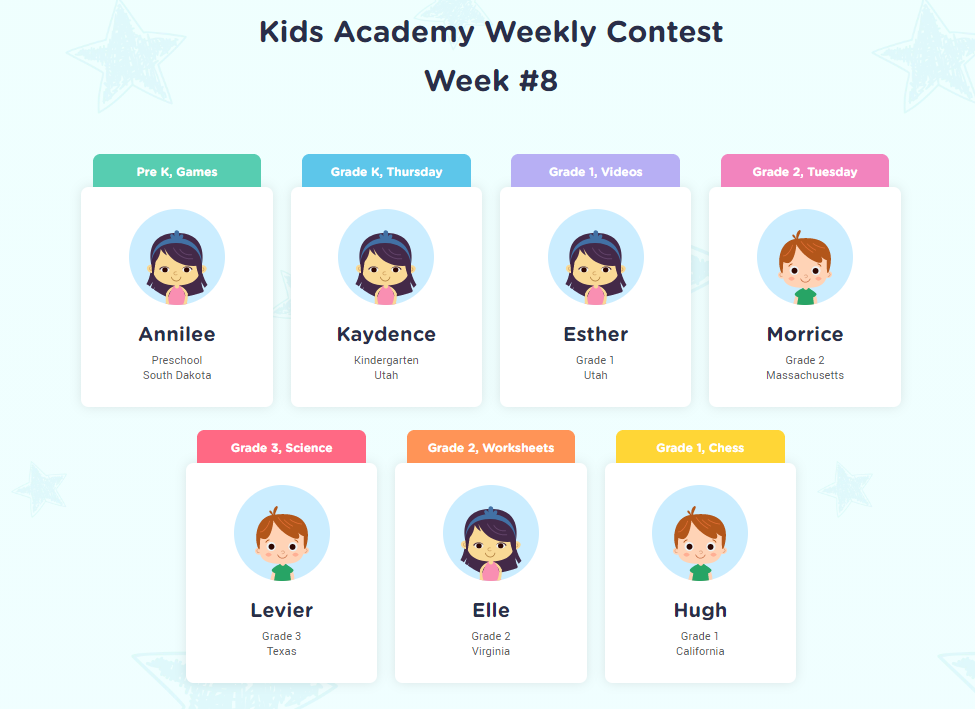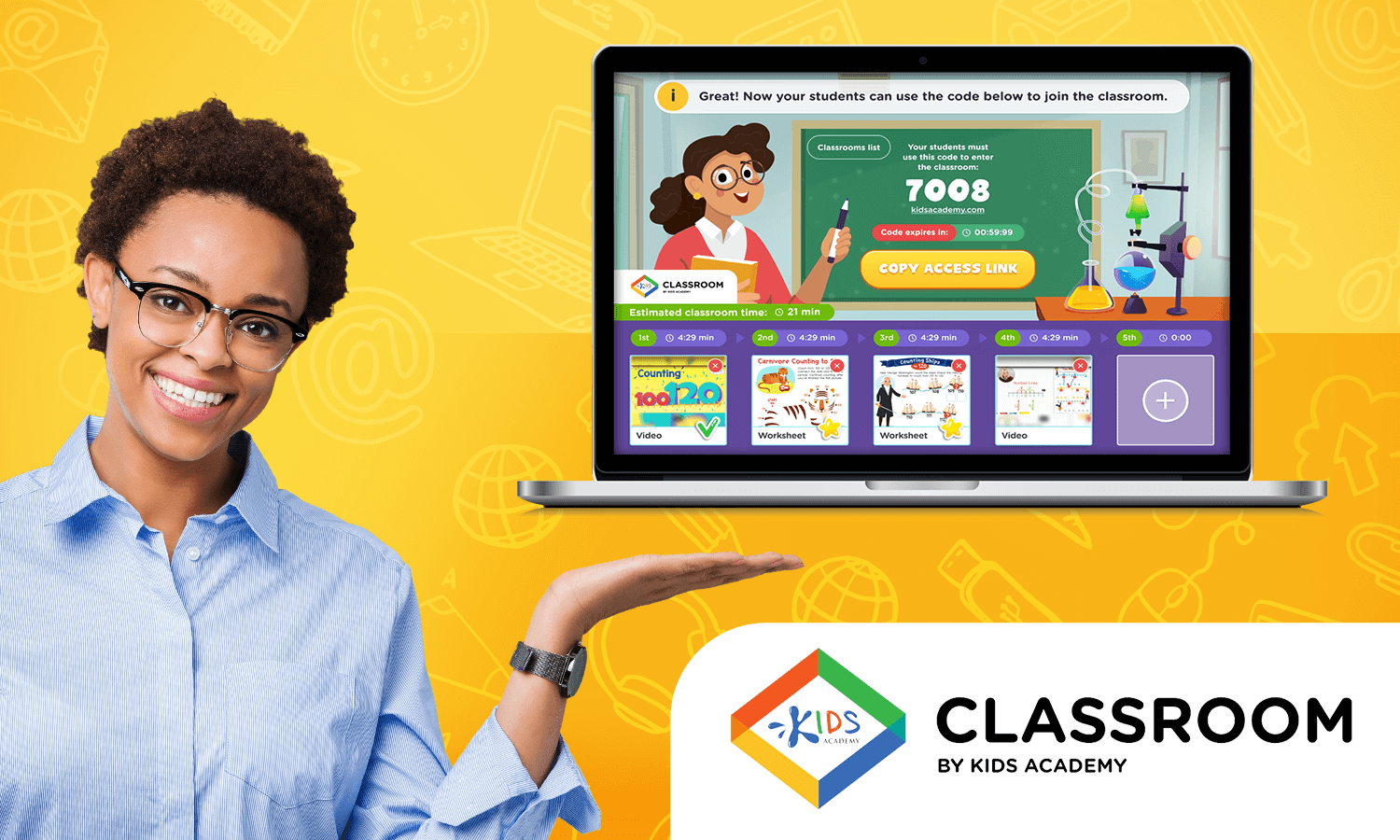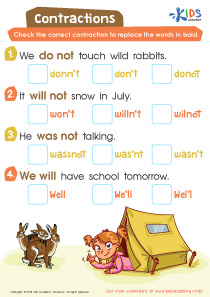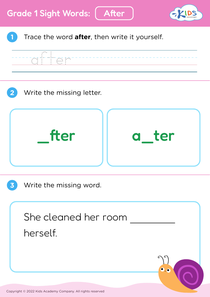RF.1.3.D Phonics and Word Recognition worksheets With Answers for Grade 1
2 filtered results
-
From - To
Enhance your 1st graders' phonics skills with our comprehensive RF.1.3.D Phonics and Word Recognition worksheets, complete with answer keys! Designed in alignment with Core Standards, these worksheets support young learners in mastering sound-symbol relationships and decoding skills through engaging activities. Each worksheet encourages children to recognize and use phonetic patterns while developing essential reading fluency. With clear answers provided, educators can easily assess students' progress and understanding. Our printable resources serve as valuable tools for classroom instruction or at-home practice, ensuring your students are on their way to becoming confident, proficient readers. Start exploring and building strong reading foundations today!
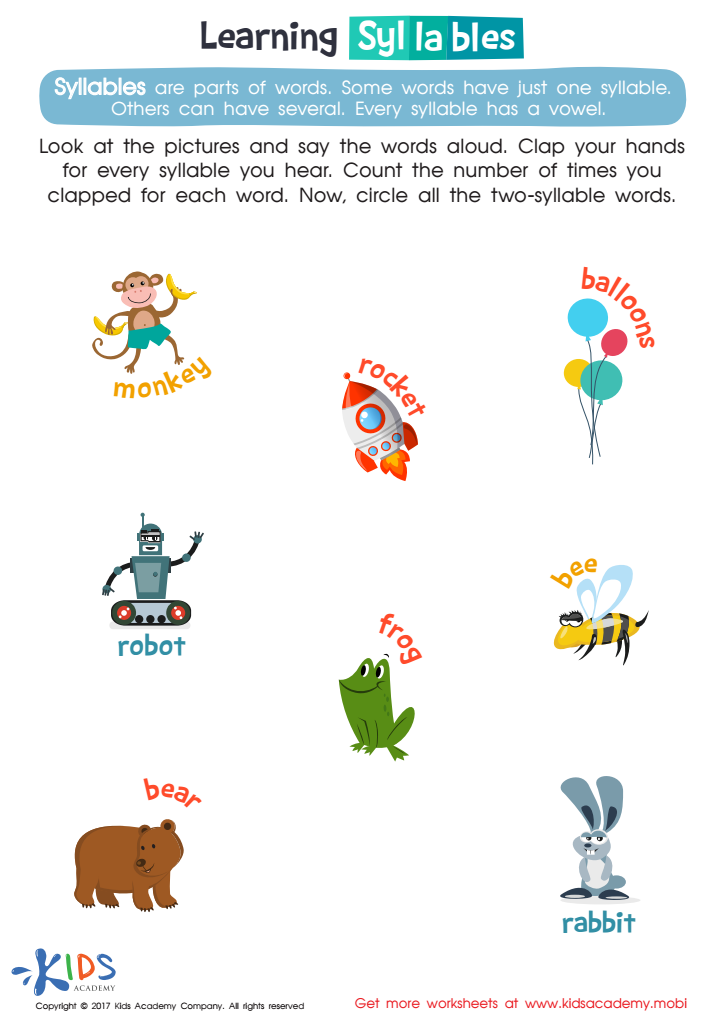

Learning Syllables Word Structure Worksheet
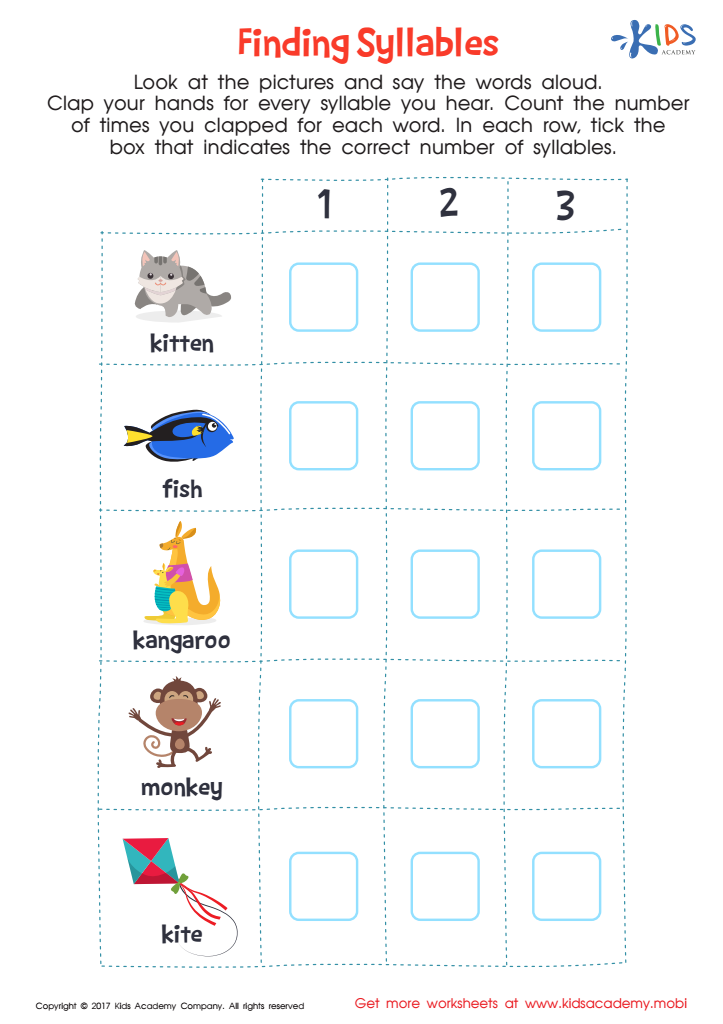

Finding Syllables Word Structure Worksheet
RF.1.3.D focuses on phonics and word recognition skills essential for first graders. This standard emphasizes the importance of explicitly teaching students how to decode words, recognize sight words, and develop phonemic awareness. Parents and teachers should prioritize this standard for several reasons.
First, strong phonics skills lay the foundation for successful reading. When children can sound out words, they build confidence and can tackle more complex texts as they progress. Furthermore, recognizing sight words helps improve reading fluency, allowing students to spend less time decoding and more time comprehending what they read.
Second, phonics instruction can significantly affect a child’s overall academic achievement. Proficiency in decoding and recognition contributes to better performance in all subjects, fostering a love for reading and learning.
Moreover, understanding phonics allows children to engage in everyday literacy practices, enhancing their ability to enjoy stories, read instructions, and communicate effectively.
In summary, RF.1.3.D fosters essential skills for literacy development, impacting a child's overall academic journey. By investing in phonics and word recognition, parents and teachers equip students with tools that promote lifelong learning and critical thinking.
 Assign to My Students
Assign to My Students




